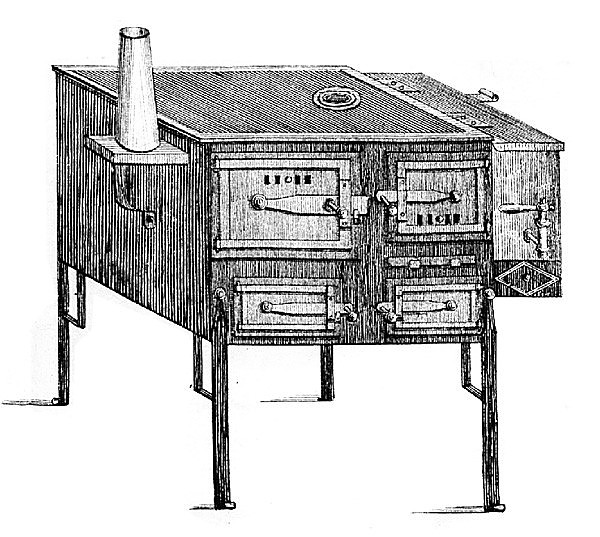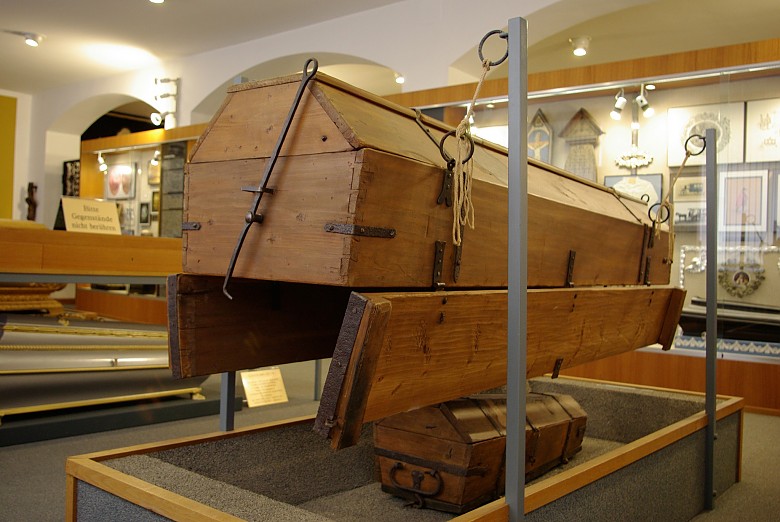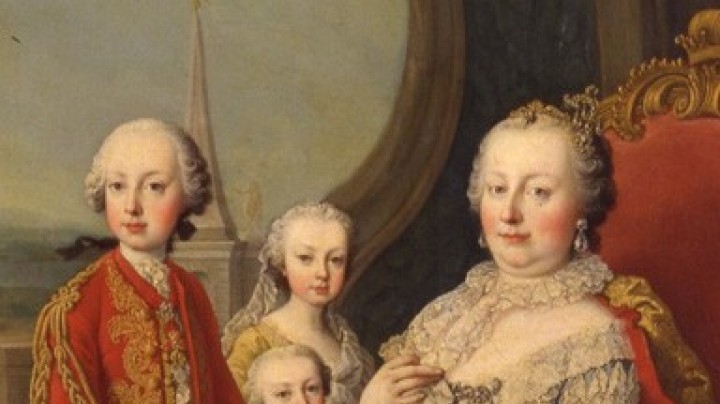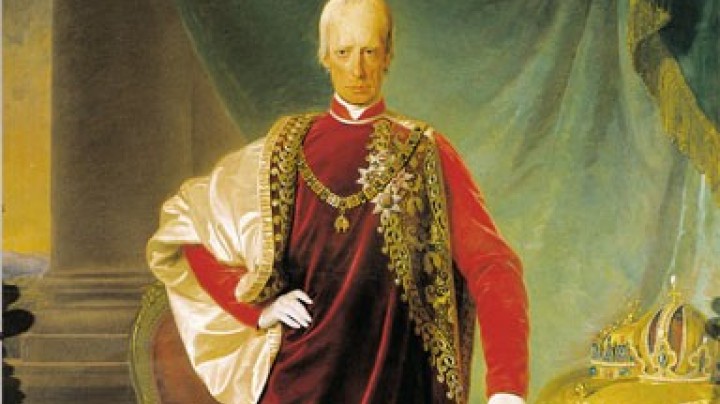It is forbidden to wear clogs! Saving energy under Maria Theresa and Joseph II
Because people were using more and more energy and wood was in increasingly short supply, Maria Theresa and Joseph II ordered the population to save energy. While the ‘economy stove’ was a great success, there was considerable resistance to the ‘economy coffin’.
In the second half of the eighteenth century wood was the number one source of energy both for businesses and for private households. In line with the increasing demand, the price of wood varied considerably from region to region. Until the arrival of the railways the only viable way to transport wood over long distances was to float it down rivers on rafts, and this provided seasonal employment for a large number of people.
In order to provide both the population and industry with more energy Maria Theresa and Joseph II on the one hand promoted the increased production of timber. Nurseries, spruce monocultures and reforestation were seen as ways of increasing the yield. On the other hand numerous bans and orders such as Maria Theresa’s Forest Order of 1767 regulated the consumption of wood by, for example, placing more severe punishments on the unauthorized removal of timber. The rural population regarded these decrees imposed by the authorities as an infringement of their traditional rights of use.
Less wood was also used by the ‘economy stove’, which was intensively promoted especially in Vienna from the end of the eighteenth century and which replaced open fires in a gradual development lasting until the middle of the nineteenth century. Other ways in which people tried to reduce the consumption of wood and energy were by making windows smaller or by using two sets of windows to provide better insulation. There were other measures imposed by the authorities that were unpopular and also less appropriate, the most famous being the so-called ‘economy coffin’. Other measures which it proved impossible to implement were the use of less timber in building houses and bans on Midsummer Night fires, maypoles and clogs.















